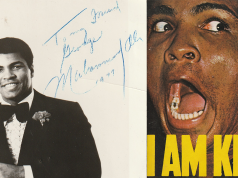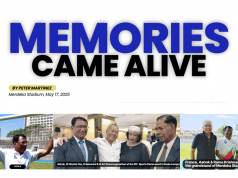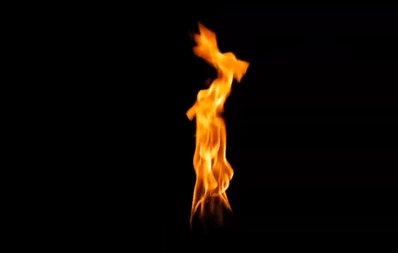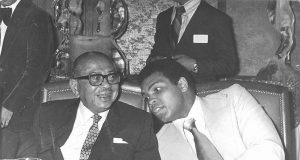
My sportswriting career was “launched” in a most unceremonious way exactly 43 years ago.
Pak Samad (the late Tan Sri Samad Ismail), who was the New Straits Times Managing Editor then, came out of his room and shouted across the editorial floor: “Fauzi, besok engkau join Malay Mail sports desk.” (Fauzi, tomorrow you join the Malay Mail sports desk). That’s it. No official letter. Nothing. He wasn’t even properly dressed for the occasion, just in his singlet.
In those days, the air-conditioning in the old NST building quite often broke down.
Each time it did, Pak Samad would take off his shirt and walk around only in his singlet. It was on one such hot and steamy day that I was made a sportswriter. And my life was never the same again.
The people I met, the places I went to, the things I saw and heard in the profession changed my life forever.
For example, my most unforgettable encounter happened when I was working for the Sports Mirror in 1981. Malaysia’s king of the road, Ali Hassan, had died after a nasty accident while training along Jalan Duta. He had apparently hit a pothole, fell off his bike, hurt his head and died. I was assigned to interview the family.
When I arrived at the house, the whole family was in the living room mourning his death. The minute I introduced myself as a reporter, Ali’s mother flew into a rage. She rushed to the kitchen, grabbed a parang and came at me shouting, “Apa lagi kau orang mau, ah? Anak aku dah mati. Pergi! Pergi!” (What else do you all want, ah? My son has died. Go away! Go away!).
Shocked, I just stood there, unable to move. If not for the family members who stopped her, I believe I would have been chopped that day. Until today I can still hear her wails and screams. How do you deal with something like that?
Then there was time, in 1981, when I received a bullet in a white envelope left at the Sports Mirror office after I had written a story on bribery in football. That was definitely something to keep you awake at night. In 1994, yet another unnerving episode: rocks, wrapped in death threat notes, smashed through the kitchen windows into my house (more in separate article).
Truth is, I didn’t plan to be a sportswriter. I just wanted to be a journalist. The journey actually began when I was a student at the Malay College Kuala Kangsar. We had a very strict English teacher then. His name was Encik Razak Shafie. Before each school holiday he would always make us borrow a book from the school library, read it and then write a summary of the book. It was from there that I started appreciating the beauty of the English language and actually enjoyed doing the assignments.
And as fate would have it, when I was in Form 4, I met this guy on a bus while travelling back to school. His name was Ramli Panjang Ahmad. He happened to be a writer who occasionally contributed articles to Berita Harian. We became good friends. He would often invite me to his home in Padang Rengas for meals. We talked a lot too.
When he heard that I loved to write he immediately suggested that I should consider being a journalist. He even bought me books on journalism and kept encouraging me until I was convinced I really wanted to be a journalist. I’m really glad I did become one.
I’ve often told people around me that journalism – in my case, sportswriting — is not a job. It’s fun. In all my years as a sportswriter, I never felt I was doing a job. It was fun all the way. Like the saying goes, love your job and never work a day in your life. That I have done.
In fact, the fun started even before I got the job. It was during the job interview that I knew I was going to have a good time working at the NST. Having applied for a Cadet Journalist’s post while sitting for my Higher School Certificate (HSC) examinations in 1974, I was called for an interview at Balai Berita, Jalan Riong, Bangsar in early 1975.
It was Pak Samad who interviewed me together with the then NST Personnel Manager. I only remember him as Mr Thava. Seeing that I was from Malay College Kuala Kangsar, Pak Samad shot the first question: “Talk to me about homosexuality.”
What! “Is this a trick question?” I thought to myself. Noticing that neither Pak Samad nor Mr Thava was smiling, I braced myself and started answering. As I was talking, Pak Samad was going, “Hahaha, hahaha, hahaha…” Those who knew Pak Samad will know what I’m talking about here. The way he laughed when he liked something.
He kept asking me more questions, I kept answering, he continued laughing. It went on like that for a good 45 minutes. At the end of the interview, which I actually enjoyed, Pak Samad chased me out of the room, saying, “If you don’t hear from us within two weeks, you won’t get the job.”
On my way back to my hometown Kulim, Kedah, I stopped at MCKK to catch up with old friends and teachers at my alma mater. After spending almost a week in Kuala Kangsar, I called home to find out if there was any letter from the NST. There was. I asked my father, who had answered the call, to open the letter. I got the job.
I reported to Balai Berita in April 1975. After three months of doing court reporting and crime, I got that shout from Pak Samad from across the editorial floor to join the Malay Mail Sports desk.
Perhaps the biggest fun I had in my job was covering the 1990 World Cup in Italy. I spent a whole month travelling all over the country not only watching and writing about football but also enjoying the scenery, the food and the people. It was one unforgettable experience.
However, the thing I remember most about that assignment was how I acquired press accreditation. Actually, I wasn’t down to cover that World Cup. I was invited by the FA of Malaysia, together with a few other sportswriters, to join their delegation to attend the opening ceremony, watch the opening match and then return to Malaysia.
Somehow, while I was there, my bosses back in Kuala Lumpur decided I should stay on and cover the whole World Cup for the NST. I was thrilled to bits until I realised I did not have press accreditation to cover the event. As you might be aware, press accreditation is usually done months before the start of a World Cup and the organisers don’t entertain last minute requests.
Unperturbed, I decided to try my luck and headed to the press accreditation office in Rome. After listening, the person-in-charge just had this to say to me: “You are a very brave man to come all the way here without any accreditation.” He was actually mocking me, I thought.
Frustrated and not knowing what else to do, I asked him: “Do you know Mr Peter Velappan?” He said he did. Of course he did because Peter was the co-ordinator of the Italy World Cup. I didn’t know where Peter was based then. So I politely asked the person-in-charge if he could call Peter for me. Grudgingly, he dialled a number.
He spoke some Italian and after quite a long pause, handed the phone to me. How relieved I was to hear Peter’s voice on the other end. After explaining to Peter my predicament, I handed the phone back to the person-in-charge as instructed.
“Yes,….. Yes…. Yes…. Of course Mr Velappan,” was all I heard the person-in-charge say to Peter. Thirty minutes later I walked out of the building with my World Cup accreditation around my neck and lugging a big bag filled with World Cup souvenirs and other stuff that came along with the press kit. That, to me, truly defined the spirit of Malaysia Boleh.
Of course there were sad moments too. One such incident was the demise of Malaysia’s greatest footballer, whom I loved and respected tremendously, Mokhtar Dahari. My biggest regret is that I wasn’t in the country when Mokhtar passed away. I was working in NST’s London office then. I couldn’t attend his funeral.
I can’t exactly remember the last time I met Mokhtar. All I can remember of that final meeting was his frail body, which was a far cry from the solid and powerful footballer he once was. I remember seeing the sadness in his eyes and how I struggled to control my emotions – I just couldn’t believe why someone as honest, dedicated and hardworking, someone who had given so much to the country, could be afflicted with such a deadly disease. To me, Mokhtar was truly the greatest sportsman Malaysia had ever produced. They don’t make them like him anymore.
In fact, the same goes for the officials and sportsmen from that era – they don’t make them like you guys anymore. I really miss those good old days.
Talking about the good old days, I have to include the people I worked with – my colleagues. These are the people who influenced me the most in my career as well as in my life. Among them were Chua Huck Cheng, Francis Emmanuel, Bill Tegjeu, Tony Francis, George Das, Lazarus Rokk, R. Velu, Cheryl Dorall, Tony Danker, R. Nadeswaran, Terence Netto, Maurice Khoo, Leo Nathan, R.D. Selva, P’ng Hong Kwang, George Jeyaraj, and Tony Mariadass. Those were colleagues I met in the Seventies. And in the Eighties along came Johnson Fernandes, Hishamuddin Aun, Randhir Singh and Dan Guen Chin.
One of the things I enjoyed most during my rookie years was the late night suppers with my colleagues from the NST and the Malay Mail. After putting the first edition to bed before midnight, our favourite thing to do then was have supper. Actually, that was where I learned most about the job, from the stories told by my seniors.
I loved listening to how they went about getting their stories, building their contacts and how they would approach certain stories and so on. Most of the stories were funny and that made the sessions all the more enjoyable. Rokk and I were rookies then and we loved those sessions so much that we would even turn up at the office on our off days. Talking about Rokk, I’ve told him on so many occasions that he ended up in the wrong profession. He should have been a stand-up comedian instead of a journalist.
And I will always remember Tony Francis for giving me that column “Fauzi Omar on Tuesday”. I had just returned from the United States in 1984 after taking a break to study journalism at Boston University. I went straight to the NST sports desk to begin the second phase of my sportswriting career. I remember feeling fully recharged and ready to take on the world after my four-year stint in Boston. The column was just what I needed. Tony had taken over as Sports Editor from Mansoor Rahman and had given the desk a breath of fresh air. I remember looking forward to writing the column each week and I must say those were my most productive years as a sportswriter.

But if you ask me who was the one person that helped shape my career the most, that person has to be Bill Tegjeu. Bill was my senior when I joined the Malay Mail sports desk in 1975. Bill is a quiet, behind-the-scene kind-of-guy but his writing and his subbing work were perhaps, in m
y opinion, one of the best in the NST then.
The other person who has had a huge impact on both my professional and personal life is George Das. George has always been someone I aspire to emulate. His kindness, his generosity, his work ethic and discipline have always inspired me.
So what am I doing now? Not writing about sports anymore and quite happy about it too. The reason I say this is because the landscape has changed from the days when Rokk and I were reporting. As an example, a fellow sportswriter who had ventured into sports officialdom recently told me a very disturbing story, something that actually made me feel glad I’m out of it.
He told me that during one school tournament he noticed some of the teams only had Malay players. Disturbed by what he saw, he approached one of the teachers and asked him why only Malays. “Easy to prepare food and go for prayers together”, was the answer. Now, tell me, how do you deal with that?
And how can one forget how Farah Ann Abdul Hadi was mercilessly attacked on the internet because of the outfit she wore in competition. Some of the comments even accused her of having lost her faith, forsaking her religion. For heaven’s sake, she’s a gymnast. What do these people expect her to wear? A robe and tudung?
We may have achieved a lot m
ore at the international level these days but the undercurrent in Malaysian sports these days is not good. You may say the incidents I quoted above are isolated ones, but the fact that it has happened should alarm our sports authorities. For if things like that are not nipped in the bud, we will be hampered by even bigger things of the same nature in the future.
As for me, I’m happy not writing about sports anymore. But all the same, I’m grateful to Pak Samad for ordering me to the sports desk on that hot and steamy day 43 years ago. I wouldn’t want any of it to be different. Not even by a bit.
By
Fauzi Omar



 If you have an interesting personal story of a sports personality with photographs and video, we would like to publish it on this site.
If you have an interesting personal story of a sports personality with photographs and video, we would like to publish it on this site.


